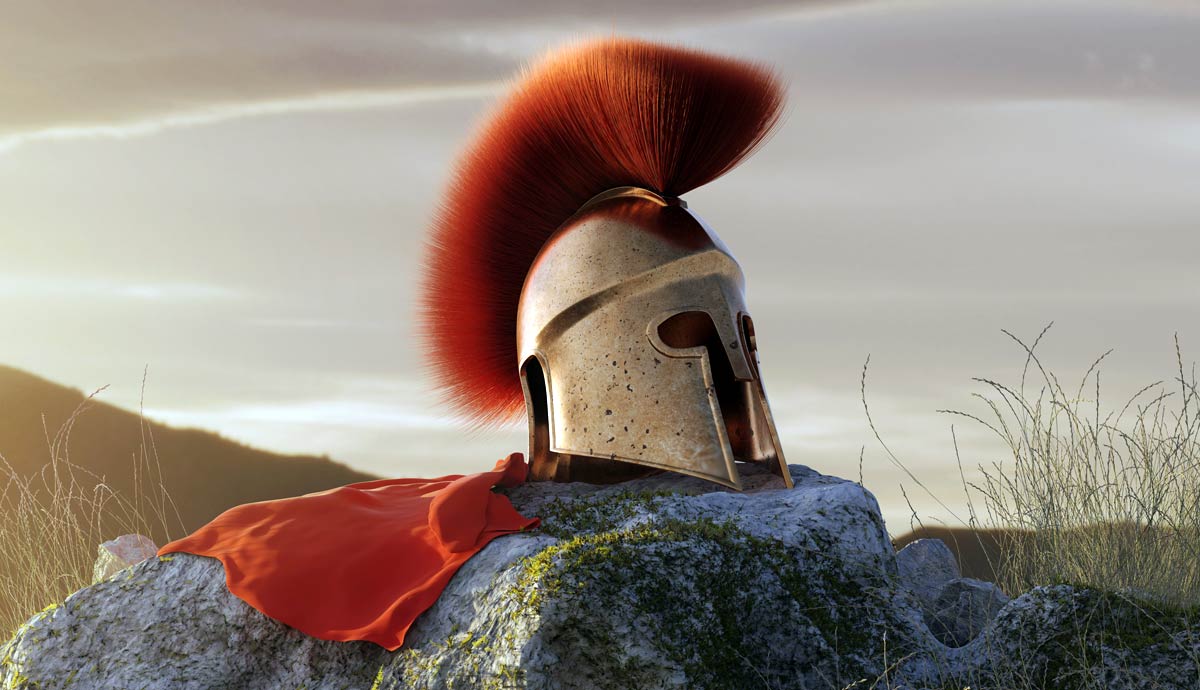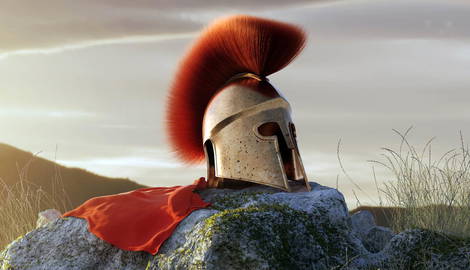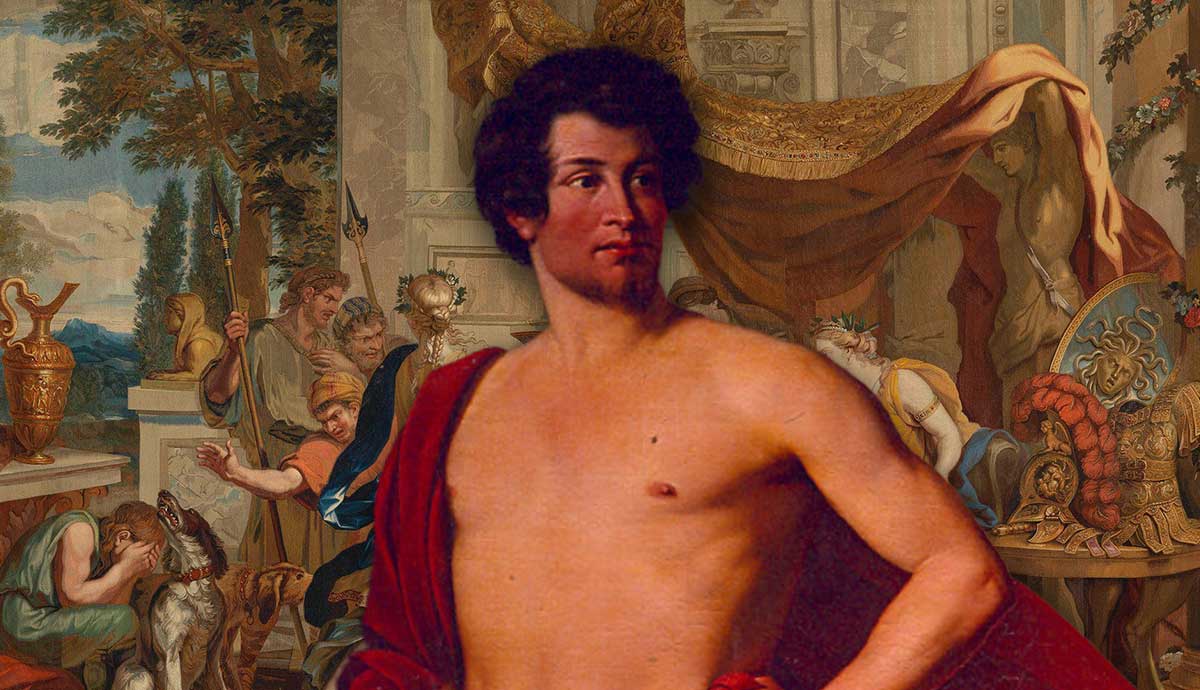
Ancient Greece is famous for its heroic history, and one of the most notable city-states that was a part of this glorious chapter of the human past was Sparta. It was known for its soldiers who fought until the end to bring glory and victory to their state and people. Besides being brave soldiers, Spartans were extremely patriotic. They managed to make a close-to-perfect political system that would lead Sparta to become one of the strongest city-states in ancient Greece. Read on to learn more about Sparta’s political system.
Sparta’s Political System Was a Dual Monarchy

According to the Spartan political structure, the city-state was jointly governed by two kings. In the past, two kings were from different dynasties and performed major state functions. Both Thucydides and Herodotus wrote about Sparta’s two kings. As is the case with several other Greek historical establishments, this one has a mythological link. By the mythological tradition, Eurysthenes and Procles, twin brothers, established the Spartan system of two kings.
There were many duties the kings of Spartans performed. The duties ranged over various areas, including religion, military, diplomacy, and law. Kings were also priests and played a significant part in religious activities. Because Sparta was very closely connected with the military, one of the kings always fought with the soldiers, while the other held the city and managed all the other affairs. They were also judges on various issues of inheritance and public property. And like other kings, they were Sparta’s ambassadors to other city-states.
According to the political laws of the Spartans, there were no ultimate authoritative institutions, which meant that the kings did not have absolute powers. Institutions like the Gerousia, the Ephorate, and the Apella had the ability to veto, or for that matter, challenge the kings’ decisions. For centuries, Sparta had two kings. Then, in the 1st century BC, kingship was downgraded to a formal position. The dual monarchy is one of the most notable features of Sparta’s political system.
Gerousia—Council of Elders

One of the key political institutions in ancient Sparta was the Gerousia. It was established after the institution of two kings. According to ancient Greek historians, it appeared around the time of Lycurgus, the legendary Spartan lawmaker whose historical existence is still debated today.
The Gerousia functioned like a council. It comprised 30 members—two kings and 28 gerontes, or elders. To become a member of the Gerousia, one had to be a full Spartan citizen (more about that later) and 60 years old. Members were elected based on their family nobility and reputation. The election was organized by another political institution, the Apella. The candidates for the Gerousia were elected in an interesting way, by the loudness and the amount of noise they would get from the Apella assembly.
As a leading institution in Sparta, the Gerousia had important responsibilities and extensive authority and duties. As a major legislative body, the Gerousia created new laws that the Apella’s members then confirmed or rejected. As the top court, the Gerousia declared final rulings that no one could change. The Gerousia also served as an advisory group in key matters. As senior advisors to Sparta’s rulers, gerontes helped leaders make decisions that would benefit their city-state.
The members of Gerousia, gerontes, functioned in their respective capacities for and on behalf of Sparta until their death. They were very influential in Spartan society. However, as with the institution of two kings, their authority was limited. They were supervised by other institutions, such as the Apella and the Ephorate. Geronts were blamed for being traditional and conservative since they usually resisted change and the reform of the city-state.
Ephorate—Ephors

Another important institution of Sparta’s political system was the Ephorate. According to ancient historians, it was also established around the time of Lycourgus. It functioned as a council of five ephors elected annually from the class of full Spartan citizens.
Unlike gerontes, every male spartan citizen over the age of 30 could become an ephor. The Ephorate’s members were also elected by the Apella. However, the mandate lasted only one year, and one could not be elected twice for the position. That measure was brought up to ensure the power would not be abused.
Ephors had a lot of functions and duties in the following areas: executive, judicial, military, diplomatic, educational, and moral oversight. The Ephorate was required to ensure that all aspects of the city-state ran efficiently and policies were carried out. Being judges and principal executors of Spartan law, ephors could even sit as jurors in trials against Sparta’s kings if they had violated the law.
Ephors were also involved in the control of the military, ensuring that all that was being done complied with the agreed-upon military strategy. Like the kings, ephors were involved in diplomatic processes. They decided whether the city-state should engage in a war or not. Also, they controlled one of the most concealed Spartan traditions: the Spartan children’s upbringing and education, an area that strictly followed severe and conservative rules.
The Ephorate was also supervised by other institutions like the Gerousia and the Apella. In the 1st century BC, this institution was considered one of the most influential in Sparta, besides the two kings.
Apella—Assembly

When it comes to Sparta’s political system, we can find multiple political elements and different political institutions that aimed to include more Spartan men in political life. The Apella was the citizen assembly. It can also be traced to the time of the legendary Lycurgus.
All male spartan citizens older than 30 years of age who had completed their military training could become members of the Apella. According to ancient historians and tradition, the Apella’s members would meet during a full moon to vote in the Gerousia and Ephorate elections. They would vote by shouting, so the loudest noise would grant candidates a position in one of the political institutions.
The Apella performed legislative, electoral, and judiciary tasks, as well as tasks regarding foreign relations and war. The Apella also had the power to approve or disapprove the bills and laws that the Gerousia brought forward. Moreover, any matter related to war and peace or the formation of alliances or treaties with other city-states needed the approval of the Apella. Sometimes, the Apella functioned as a court in cases that fell under its jurisdiction.
The Apella was a representation of Spartan citizenship. It had significant powers; however, it also had a lot of limitations. The Apella was generally controlled by the Gerousia and the Ephorate. Additionally, while citizens could cast their ballots, the elites had full power over everything else.
One of the weaknesses of the Apella was the lack of open debate and communication between citizens and the elites in other institutions. Nevertheless, the Apella was one of the key institutions of Sparta’s political system, building a strong foundation for the city-state to prosper.
Political Participation and the Spartan Elite

Voting in the political process was only allowed for full Spartan citizens, known as Spartiate or Homoioi (Equal). Full citizens had the privilege to vote and participate in Sparta’s political system. They could enter the military, own land, appeal to laws, and partake in public customs. However, what has not been explored is the fact that political participation was closely associated with military obligations. Sparta was a militant polis, and military training and mobilization were key elements of its political system. Even if a person was born in a Spartan household, which meant they had full citizenship rights, they could lose them if they did not join the military and fulfill their duties.
Which people of Sparta had no voting privileges and citizenship? They were divided into two categories—Perioeci and Helots. The Perioeci were an independent population. However, they were non-citizens who resided in the city-state and its territories. They also served in the army, but not as a special force. Instead, they served as hoplites—citizen-soldiers.
In Sparta’s political system, women could not vote and were mostly involved in the economic activities of society. Since the Spartans’ lives nearly entirely revolved around military matters, the city-state needed somebody to handle trade, economy, and artistry. The Perioeci would create and manufacture tools, other products, and weapons. They were essential in running the city-state, as they allowed Spartans to concentrate on matters of war and politics.

Another group of non-citizens was the Helots. Unlike the Perioeci, they were not free, but they were enslaved. They were bound to the land. They were considered to be state owned. At times, they also fought in wars as light-armed troops. In the course of Sparta’s history, there were quite a few Helots’ rebellions because they wanted freedom as they lived in poor conditions and experienced cruelty.
Legacy of Sparta’s Political System

Sparta had a complex and multilayered political system containing elements of monarchy, democracy, and oligarchy. All institutions held the others accountable, and there was limited room for power abuse. However, ultimately, Sparta was a military oligarchy.
Sparta successfully blended military and politics; one could not exist without the other. Even though it had certain democratic elements, such as the Apella, Sparta can be seen as a military oligarchy. Why? Because there was the rule of few over the many. Additionally, the state’s main goal was military success and expansion.
The political system of Sparta allowed the city-state to extend its dominance to other territories and polis. At the same time, there were several demerits with this kind of political establishment. The state was discriminative against the majority of the population, which, in the end, led to the decline of citizens with political power, the Spartans. The power was concentrated in the hands of a few, a practice which would eventually be detrimental to the city-state.

Sparta’s complex political structure influenced the institutions of ancient Rome. We can see this influence in institutions such as the Roman consulate, the senate, and the popular assemblies. Sparta also shaped modern political theory since scholars started examining the balance of power in the state. Sparta is an important example of a political system that mixed different political elements. Today, Sparta’s political system teaches us the importance of inclusivity and the principle of checks and balances to avoid abuse of power, which is possible in every political system.




